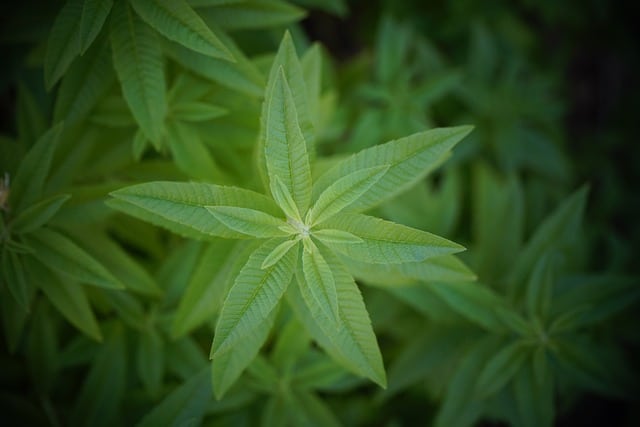Are you trying to find the best companion plant for your lemon verbena plant?
Plants that grow in full sunlight are good companions to lemon verbenas. The ideal companion plant receives watering once weekly in soil with good drainage. Slightly acidic soil is typically the best soil for lemon verbena companion plants.
Some great options for lemon verbena companion plants that thrive in full sunlight include lavender, rosemary, and chamomile, all of which not only complement the citrusy aroma of lemon verbena but also have their own unique medicinal and culinary benefits.
If you are interested in finding the best companion plant for your lemon verbena, explore the remainder of this article to learn more about the top 10 lemon verbena companion plants.
What are the best lemon verbena companion plants?
The best lemon verbena companion plants grow in full sunlight. Lemon verbena companion plants grow well in nearly any soil as long as it has well drainage.
Lemon verbena can attract pests, so it is essential you find a companion plant with natural pesticide properties like dill, garlic, or basil. Dill, cilantro, and garlic help keep pests away that lemon verbena may attract.
Top 10 lemon verbena companion plants
Some of the best companion plants include dill, marigolds, and tarragon, among many other things. These plants thrive in the same sun, soil, and water conditions as lemon verbenas.
Other companion plants suitable for your garden:
The following includes the top 10 lemon verbena companion plants:
- Dill
- Cilantro
- Basil
- Shasta Daisies
- Marigolds
- Bee balm
- Garlic
- Nasturtiums
- Lemon balm
- Tarragon
1. Dill
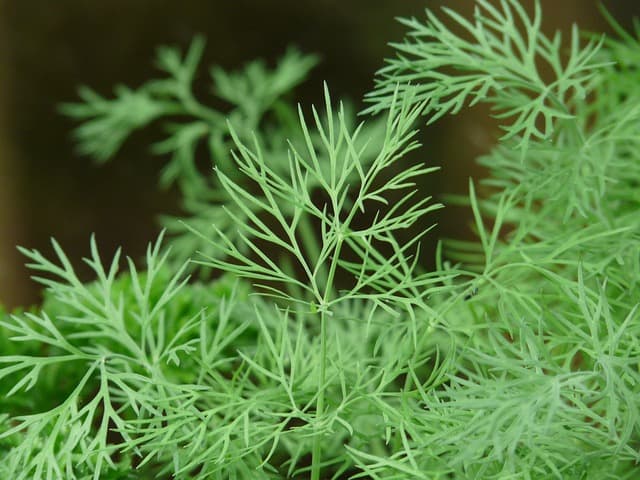
Dill is an herb that pairs best with lemon verbenas. It requires the same growing conditions and is a great companion because it can survive in nearly any soil condition. Dill is sensitive to light, requiring hot weather and ample sunlight to reach full maturity.
Dill plants have a delicate appearance that complements the lemon verbena. The top-heavy flowers on the dill cause the plant to fold over the edges of the pot. The spilling design looks nice next to the vertically-growing lemon verbena.
Mature Size: Dill grows an average of 2 to 4 feet tall and six inches wide.
Flowering: Yellow flower clusters bloom during the summertime.
Key Features: Dill keeps away pests frequently attracted to the lemon verbena plant.
2. Cilantro
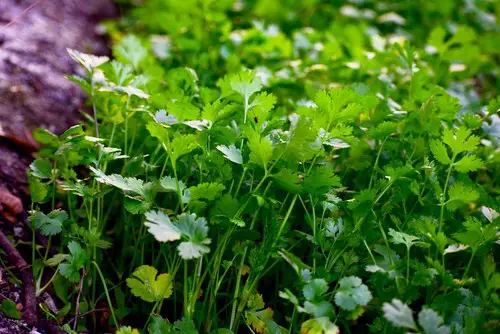
Cilantro is an herb that makes a wonderful companion with lemon verbena. It loves to grow in crowded conditions, making it good for side-by-side planting with your lemon verbena. Cilantro also requires the same sunny growing conditions as lemon verbena, which makes it thrive well in the same pot or garden.
In addition to having the same growing conditions, cilantro is a good companion plant since it will repel harmful spider mites that the lemon verbena might attract.
Mature Size: Cilantro can grow between 12 and 24 inches tall.
Flowering: Small white umbles bloom at the end of the cilantro leaves each summer.
Key Features: Cilantro bolts quickly, so be sure to harvest your cilantro frequently.
3. Basil
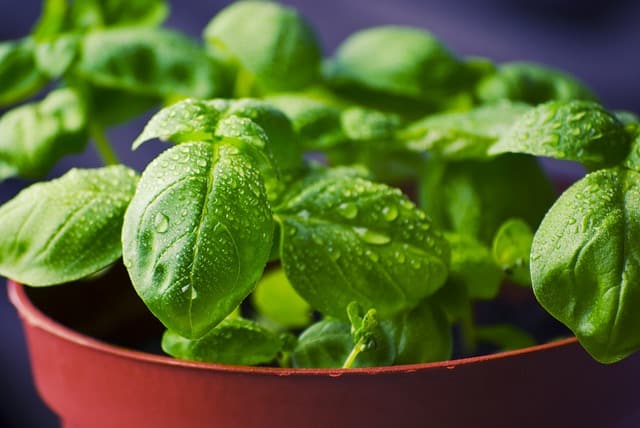
Basil is a very easy herb to grow in warm environments. It makes a wonderful companion plant to lemon verbenas because it thrives under the same soil and light conditions. Basil does best in moist soil with good drainage. Keep basil under full sunlight for at least 6 to 8 hours daily.
Mature Size: Basil grows to roughly 18 to 24 inches tall and wide.
Flowering: Pink, white, and purple flowers bloom every summer.
Key Features: Basil has natural anti-pesticide properties.
4. Shasta Daisies
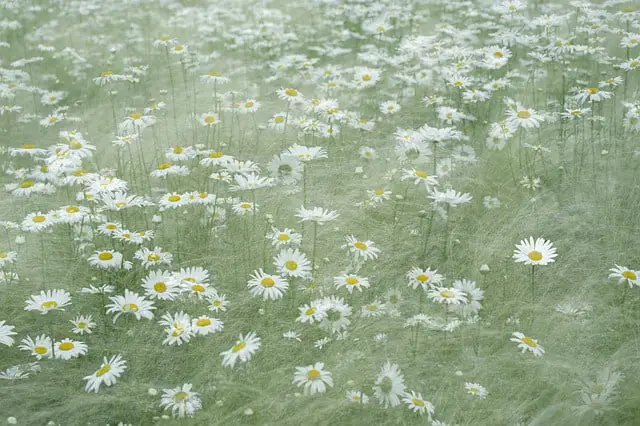
Shasta daisies are hardy perennials that partner well with the lemon verbena. Shasta daisies make a good companion plant for the lemon verbena because of their similar gardening care requirements, like loamy soil and full sunlight.
Mature Size: Shasta daisies grow 9 inches to 3 feet tall and 1 to 2 feet wide.
Flowering: White flowers bloom in the spring and summertime.
Key Features: The shasta daisy is toxic to pets.
5. Marigolds
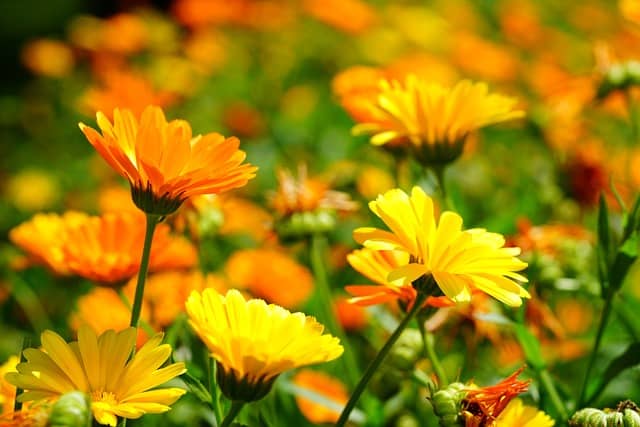
Marigolds are beautiful flowers that pair nicely with lemon verbenas. They require the same sun, soil, and water conditions as lemon verbenas, like full sunlight and almost any soil with good drainage. If they do not have soil with good drainage, marigolds can easily succumb to mildewing.
Mature Size: Marigolds grow to roughly 4 to 48 inches tall and between 6 to 24 inches wide.
Flowering: Bloom circular orange, red, white, and yellow cluster blossoms in spring, summer, and fall.
Key Features: There are over 50 species of marigolds, making them one of the most versatile lemon verbena companion plants.
6. Bee balm
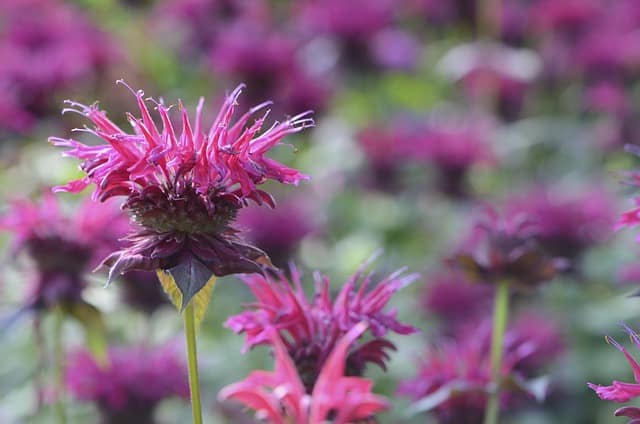
The bee balm is a pretty flower that makes an excellent companion plant with the lemon verbena. It is a bee-friendly perennial that grows under the same sunny and warm weather conditions as the lemon verbena.
Bee balms require more watering than lemon verbenas but grow well in the same soil. They are competitive for water because they require more water so it is important to distribute water evenly.
Mature Size: Bee balm grows to 10 to 48 inches tall and 10 to 36 inches wide.
Flowering: Purple, red, and white, bell-shaped flower clusters bloom in June and last until October.
Key Features: The bee balm gets its name because it attracts bees for pollination.
7. Garlic

Garlic is a bulb vegetable that is a perfect companion for lemon verbena. It grows in full sunlight like lemon verbenas and requires moist, well-drained soil. It thrives in slightly acidic soil and is toxic to animals.
Garlic is a hardy vegetable that bulbs every spring. It complements lemon verbena because it is not a competitive plant.
Mature Size: Garlic grows to an average of 12 to 18 inches tall and 6 to 12 inches wide.
Flowering: Garlic does not have any flowers, but the hardy vegetable bulbs bloom every spring.
Key Features: Garlic is toxic to animals, including domestic, wild, and farm animals.
8. Nasturtiums
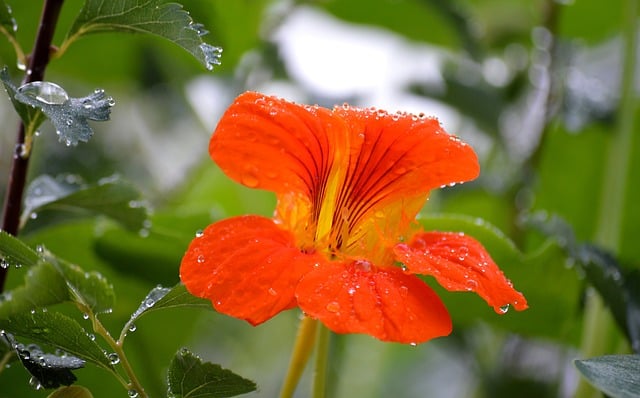
Nasturtiums are an annual perennial that thrives in nearly any type of soil. They require moist but well-drained soil and full sunlight. They are great with lemon verbenas because they require the same gardening requirements, plus the colorful appearance complements the lemon verbena.
There are over 80 species of nasturtiums, each of which blooms in different seasons. The different species of nasturtiums are different colors and thrive in different regions.
Mature Size: Nasturtiums mature to roughly 1 to 10 feet tall and 1 to 3 feet wide.
Flowering: Red, orange, pink, white, and yellow flowers bloom every season except winter.
Key Features: Nasturtiums bloom in every season except for winter.
9. Lemon balm
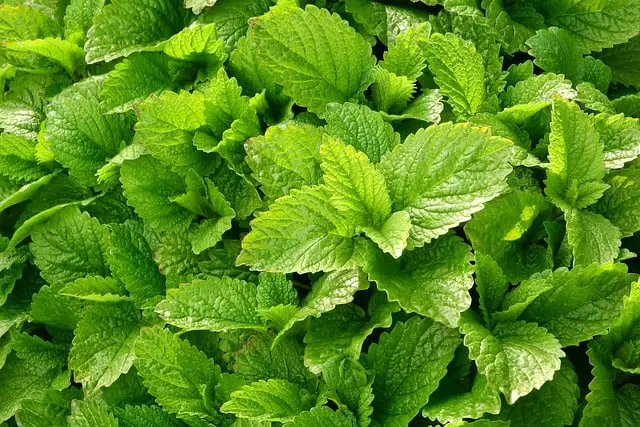
Lemon balm is a great companion plant to lemon verbena. Lemon balm thrives in acidic soil with good drainage. It is best to keep your lemon balm in full sun or partial shade. In the right conditions, lemon balm grows rapidly. It can reach over 1 foot tall.
Lemon prospers best outdoors but can be grown indoors with minor modifications. It requires more sunlight to grow indoors, so you may need to use artificial lighting.
Mature Size: Lemon balm grows 1.5 to 2 feet tall and 1.5 to 3 feet wide.
Flowering: Yellow, white, and pale flowers bloom during summer.
Key Features: Lemon balm bolts when you expose it to too much water.
10. Tarragon
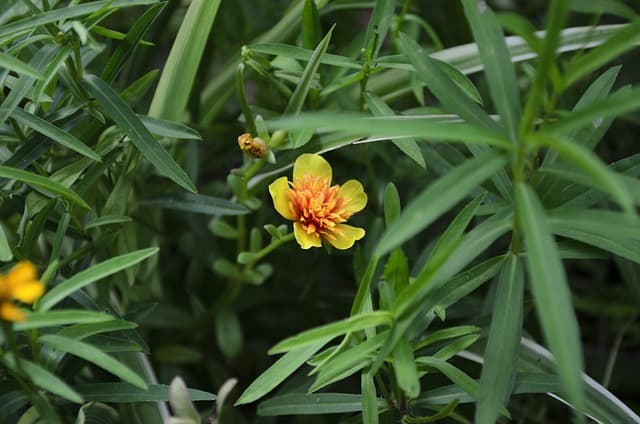
Tarragon is a perennial herb perfect for lemon verbenas. Tarragon requires full sun with partial shade throughout the day, similar to lemon verbena. It makes a good companion plant with lemon verbena because it requires similar gardening conditions.
Tarragon grows best in neutral soil and is drought-resistant, so it does not require a lot of water. Overwatering can cause mildewing and rot.
Mature Size: Tarragon grows roughly 24 inches tall.
Flowering: Tarragon blooms light green leaves in the summertime.
Key Features: Planting your tarragon in early spring ensures it will have the best flavor.
Summary
Lemon verbenas require full sunlight and soil with good drainage. Companion plants for the lemon verbena should thrive under sunny conditions or partial shade. They should require watering only once per week and be planted in soil with good drainage.
Many companion plants of the lemon verbena thrive in various soil types. However, most thrive in slightly acidic soils.
Frequently Asked Questions
What is the best lemon verbena companion plant?
The best companion plant for lemon verbena is dill because they have the same gardening conditions. Dill requires the same growing conditions, and it keeps away harmful pests that can cause your lemon verbena to die. Plus, the flowers on the dill provide a peaceful aesthetic.
How do you care for the lemon verbena plant?
The lemon verbena grows best in warm weather with full sunlight. You should water your plant at least once per week or as needed, ensuring that the soil does not stay wet or the roots may die. Plant your lemon verbena in loamy soil with excellent drainage.

Hey, I’m Lisa and I’ve been an avid gardener for over 30 years. I love writing, talking and living in the garden! Feel free to connect with me on my socials below

